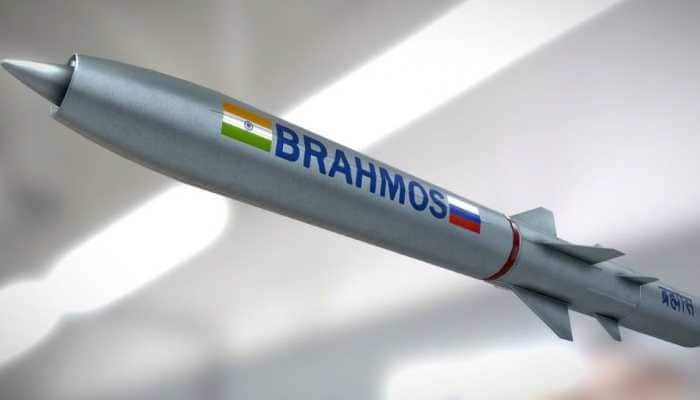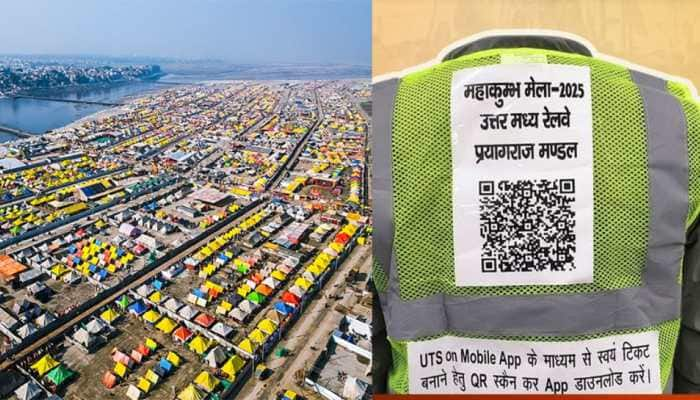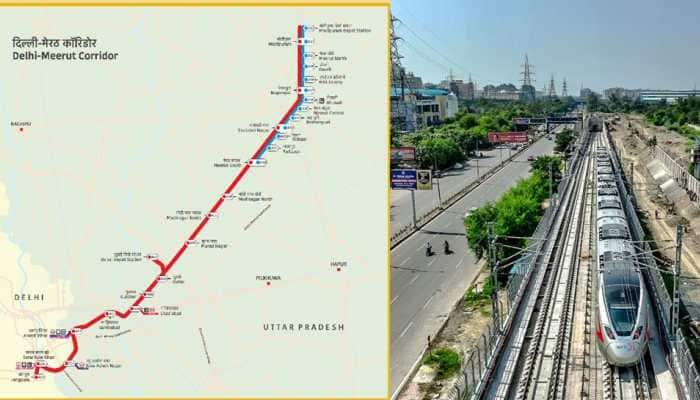Coal scam: SC stays trial court order summoning ex-PM Manmohan Singh, others
Former Prime Minister Manmohan Singh on Wednesday got relief from the Supreme Court which stayed the trial court order summoning him as accused in a coal block allocation case.
Trending Photos
)
New Delhi: Former Prime Minister Manmohan Singh on Wednesday got relief from the Supreme Court which stayed the trial court order summoning him as accused in a coal block allocation case and the proceedings before it after he questioned the lack of sanction to prosecute him and contended that there was no criminality in the decision.
The relief was also extended to Hindalco Chairman Kumar Mangalam Birla, whose company was granted Talabira-II coal block in Odisha in 2005, former Coal Secretary P C Parakh, two Hindalco officials Shubhendu Amitabh and D Bhattacharya and the company itself.
"We issue notice on all six petitions. The trial court order shall remain stayed," a bench of justices V Gopala Gowda and C Nagappan said, adding the consequential proceedings "arising out" of the summoning order shall also remain stayed.
Special CBI Judge Bharat Parashar had on March 11 rejected the CBI's closure report and summoned Singh and the other five as accused to appear on April 8.
Watched by 82-year-old Singh's daughters Upinder and Daman Singh, the 35-minute proceedings saw a battery of lawyers, headed by senior counsel Kapil Sibal, contending that the trial court had exceeded its jurisdiction by attributing criminality in administrative decisions of the Prime Minister, who was also holding the Coal portfolio then.
"I must confess that I have not been able to find out what is the illegal act done by the petitioner (Singh) in the case.
"The petition raises substantial questions of law which call for authoritative pronouncement from this court in relation to the inter-play between governmental functions and criminal prosecution under the PC Act, specially in cases where there is not even a whiff, let alone an allegation of quid pro quo, and the case is based upon the processes of governmental decisions," Sibal said.
Referrring to the trial court order, Sibal said, "It is purely an administrative decision. What is illegal in it? Is it illegal to allot a mine?
"It is not illegal to allot it to a private party. There is no statutory prohibition in doing so. He allotted coal blocks to a private party against the screening committee decision. There is nothing illegal in it."
He said the trial court's decision to summon the former PM is a "grave mistake both in law" and "understanding of evidence".
Sibal said it is not an illegal act to allot a mine contending that the administrative acts of the PM cannot be faulted on the ground that he did not follow recommendations or procedures adopted by the screening committee.
He then referred to the earlier Supreme Court judgement by which all the coal block allocations were quashed on the ground that screening committee procedures were illegal.
"The trial court, in its order, says that you did not follow the screening committee and this is contrary to law," Sibal said, adding the screening committee procedures have been faulted by the apex court and the former PM is summoned for not following the procedures.
Sibal also said that the trial court order summoning former Prime Minister and others does not stand the scrutiny of "public reasoning".
"Moreover, keeping the federal structure of governance in mind, the then PM had honoured the request made by Odisha Chief Minister for allocation of coal block to a joint venture between private and public enterprises," he said.
He also said that the trial court order does not deal with the provisions on requirement of prior sanction to prosecute a public servant under section 197 of the criminal procedure code (CrPC) and the Prevention of Corruption Act.
"The trial court failed to appreciate that the petitioner (at the time of commission of the alleged offence) was holding an office as a public servant not removable from such office save by or with the sanction of the government.
"The trial court also failed to appreciate that no court was entitled to take cognizance of such alleged offences in the absence of any sanction under section 197 of CrPC," he said while referring to the petition.
Arguing on 'essential ingredients' of an offence, Sibal said that "there is no reference to meeting of minds to commit an illegal act by the accused persons".
The bench asked Sibal to satisfy it on provisions relating to grant of sanction to prosecute a public servant.
Sibal referred to various Supreme Court judgements and said "even if I am the Coal Minister at the relevant time, I don't lose the status of the Prime Minister who has got plenary power. Everyday, I take decisions as minister and reject the advice, should I be sent to Tihar Jail?".
There has to be a meeting of minds to do a criminal act with regard to allocation of Talabira coal mines to a private firm, he said, adding, "Where is the criminal conspiracy? Is it an offence to grant coal mines to a private sector company?"
Sibal said a decision may be "right or wrong" but it cannot be said to be an illegal act and the trial court order does not stand the scrutiny of public reasoning.
"There was no final allocation. There was no communication of the decision. A decision unless communicated, does not become a decision," he said.
Sibal also referred to the December 16, 2014 order of the trial court by which CBI was asked to question the former Prime Minister, and said that "a judge cannot do this. This is not fair. This is maverick."
A judge can reject the closure report and may take cognizance of the closure report but cannot decide the nature of the investigation, he said.
The bench also issued notice to the Centre on a separate plea filed by Hindalco Industries Ltd challenging the constitutional validity of section 13 (1)(d)(iii) of the Prevention of Corruption (PC) Act.
The provision says that a person, holding office as a public servant, can be tried if he obtains "for any person any valuable thing or pecuniary advantage without any public interest".
The relief was also extended to Hindalco Chairman Kumar Mangalam Birla, whose company was granted Talabira-II coal block in Odisha in 2005, former Coal Secretary P C Parakh, two Hindalco officials Shubhendu Amitabh and D Bhattacharya and the company itself.
"We issue notice on all six petitions. The trial court order shall remain stayed," a bench of justices V Gopala Gowda and C Nagappan said, adding the consequential proceedings "arising out" of the summoning order shall also remain stayed.
Special CBI Judge Bharat Parashar had on March 11 rejected the CBI's closure report and summoned Singh and the other five as accused to appear on April 8.
Watched by 82-year-old Singh's daughters Upinder and Daman Singh, the 35-minute proceedings saw a battery of lawyers, headed by senior counsel Kapil Sibal, contending that the trial court had exceeded its jurisdiction by attributing criminality in administrative decisions of the Prime Minister, who was also holding the Coal portfolio then.
"I must confess that I have not been able to find out what is the illegal act done by the petitioner (Singh) in the case.
"The petition raises substantial questions of law which call for authoritative pronouncement from this court in relation to the inter-play between governmental functions and criminal prosecution under the PC Act, specially in cases where there is not even a whiff, let alone an allegation of quid pro quo, and the case is based upon the processes of governmental decisions," Sibal said.
Referrring to the trial court order, Sibal said, "It is purely an administrative decision. What is illegal in it? Is it illegal to allot a mine?
"It is not illegal to allot it to a private party. There is no statutory prohibition in doing so. He allotted coal blocks to a private party against the screening committee decision. There is nothing illegal in it."
He said the trial court's decision to summon the former PM is a "grave mistake both in law" and "understanding of evidence".
Sibal said it is not an illegal act to allot a mine contending that the administrative acts of the PM cannot be faulted on the ground that he did not follow recommendations or procedures adopted by the screening committee.
He then referred to the earlier Supreme Court judgement by which all the coal block allocations were quashed on the ground that screening committee procedures were illegal.
"The trial court, in its order, says that you did not follow the screening committee and this is contrary to law," Sibal said, adding the screening committee procedures have been faulted by the apex court and the former PM is summoned for not following the procedures.
Sibal also said that the trial court order summoning former Prime Minister and others does not stand the scrutiny of "public reasoning".
"Moreover, keeping the federal structure of governance in mind, the then PM had honoured the request made by Odisha Chief Minister for allocation of coal block to a joint venture between private and public enterprises," he said.
He also said that the trial court order does not deal with the provisions on requirement of prior sanction to prosecute a public servant under section 197 of the criminal procedure code (CrPC) and the Prevention of Corruption Act.
"The trial court failed to appreciate that the petitioner (at the time of commission of the alleged offence) was holding an office as a public servant not removable from such office save by or with the sanction of the government.
"The trial court also failed to appreciate that no court was entitled to take cognizance of such alleged offences in the absence of any sanction under section 197 of CrPC," he said while referring to the petition.
Arguing on 'essential ingredients' of an offence, Sibal said that "there is no reference to meeting of minds to commit an illegal act by the accused persons".
The bench asked Sibal to satisfy it on provisions relating to grant of sanction to prosecute a public servant.
Sibal referred to various Supreme Court judgements and said "even if I am the Coal Minister at the relevant time, I don't lose the status of the Prime Minister who has got plenary power. Everyday, I take decisions as minister and reject the advice, should I be sent to Tihar Jail?".
There has to be a meeting of minds to do a criminal act with regard to allocation of Talabira coal mines to a private firm, he said, adding, "Where is the criminal conspiracy? Is it an offence to grant coal mines to a private sector company?"
Sibal said a decision may be "right or wrong" but it cannot be said to be an illegal act and the trial court order does not stand the scrutiny of public reasoning.
"There was no final allocation. There was no communication of the decision. A decision unless communicated, does not become a decision," he said.
Sibal also referred to the December 16, 2014 order of the trial court by which CBI was asked to question the former Prime Minister, and said that "a judge cannot do this. This is not fair. This is maverick."
A judge can reject the closure report and may take cognizance of the closure report but cannot decide the nature of the investigation, he said.
The bench also issued notice to the Centre on a separate plea filed by Hindalco Industries Ltd challenging the constitutional validity of section 13 (1)(d)(iii) of the Prevention of Corruption (PC) Act.
The provision says that a person, holding office as a public servant, can be tried if he obtains "for any person any valuable thing or pecuniary advantage without any public interest".
Stay informed on all the latest news, real-time breaking news updates, and follow all the important headlines in india news and world News on Zee News.
Advertisement
Live Tv
Advertisement







)
)
)
)
)
)
)
)
)
)
